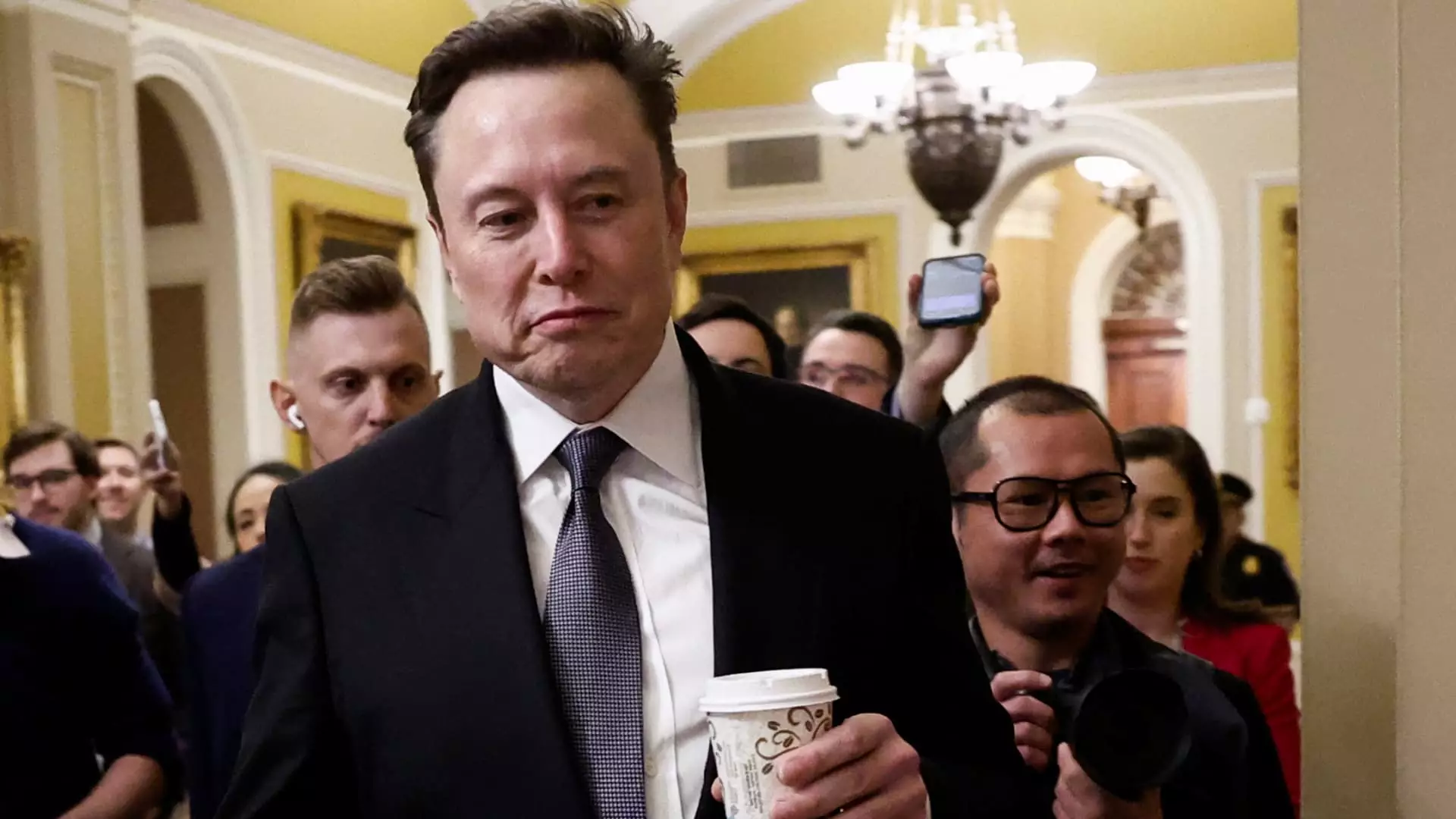In the complex landscape of U.S. politics, the recent developments surrounding the bipartisan funding bill illustrate just how corporate interests can meddle in governance. House Democrats, particularly Jim McGovern of Massachusetts and Rosa DeLauro of Connecticut, have expressed their frustrations after the failure of a crucial funding bill aimed at regulating American investments in China. This collapse, they argue, was heavily influenced by the lobbying efforts of none other than billionaire entrepreneur Elon Musk. The situation raises questions about the autonomy of legislative bodies amidst powerful corporate lobbying.
The funding bill was designed to navigate national security concerns by restricting technology transfer to adversaries and facilitating the retention of jobs and cutting-edge technology in the U.S. However, as McGovern pointed out on social media platform X, the cancellation of this provision represents a significant lost opportunity. It could have fostered greater protection for American innovations in artificial intelligence and quantum computing, vital sectors increasingly threatened by foreign competition.
The heart of the controversy revolves around Musk’s dual-role as both a significant player in the U.S. economy and a partner in the burgeoning Chinese market. Tesla is unique among foreign automakers as it operates independently in China without a local joint venture, a rarity given the nation’s stringent policies regarding foreign direct investments. Musk’s ventures into the Chinese market are substantial, with investment in a significant battery plant near Tesla’s Shanghai factory and ambitions to expand into the self-driving technology arena. The stakes are high, as his profitability in these ventures depends on maintaining a favorable relationship with the Chinese government.
McGovern’s assessment paints a concerning picture where Musk’s business needs may influence U.S. strategic decisions. The prospect of developing an AI data center in China—to the detriment of American security—is particularly troubling for many lawmakers. Musk’s record of compromise, especially in light of previous instances where SpaceX allegedly withheld its Starlink satellite services over geopolitical issues, underscores the delicate balance between profit and patriotism in his operations.
DeLauro has not remained silent in the face of Musk’s rising influence. She has explicitly pointed out the need for Chinese governmental approvals for Musk’s operations, raising alarm over the significant ties he seems to have established with the Chinese Communist Party. By labeling Musk as “President” in her correspondence, DeLauro not only aims to highlight Musk’s growing sway in political circles but also to question the commitments of Congressional Republicans who may be swayed by such forceful personalities.
The dynamic between Musk and the Republican Party also showcases an intricate web of political affiliations. Musk has become a noticeable ally to Donald Trump, leveraging his social media platform’s reach to enhance Trump’s political clout. The substantial financial contributions Musk has made during the 2024 election cycle further illustrate the intertwined nature of corporate wealth and political influence. In this regard, Musk’s actions are not merely opportunistic; they reflect a strategic alignment that could reshape policy directions on critical issues like global competition and national security.
At its core, the conflict between Musk’s interests and Congress’s aims encapsulates a broader concern—how corporate power can undermine national interests. The defeat of the funding bill signals not only a setback for legislative efforts to enhance security against foreign threats but also a significant step back for American innovation. With global competition heating up, particularly from nations that do not play by the same rules, the U.S. risks falling behind if corporate entities dictate the terms of engagement on such critical issues.
As the political landscape continues to evolve, the ongoing tussles between regulators and influential businessmen will likely influence key arenas of American life. The necessity for a defined boundary between corporate interests and national policy cannot be overstated, as failure to do so may inherently jeopardize the very fabric of American ingenuity and security. Thus, while Musk may occupy an undeniable space in the public eye, the implications of his influence on American governance warrant careful scrutiny and, perhaps, a reevaluation of existing policy frameworks.
Navigating the intersection of corporate power and national policy has never been more challenging. The scenario involving Musk and Congress serves as a poignant reminder of the complexities that arise when financial interests collide with the national interest, demanding vigilance from lawmakers and citizens alike.


Leave a Reply